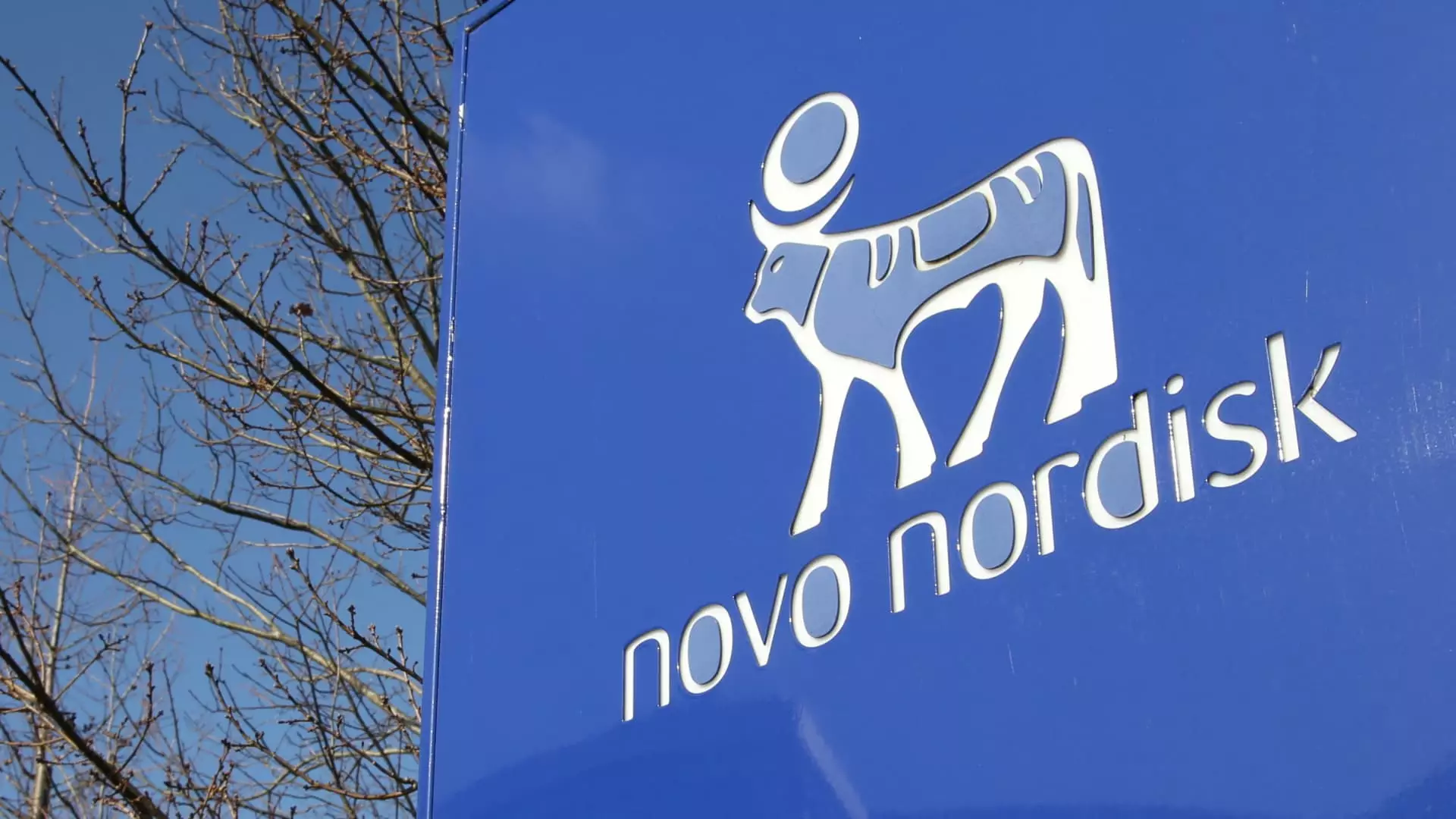Novo Nordisk, a name long synonymous with innovation in the pharmaceutical sphere, recently found itself at a critical juncture. With the announcement of disappointing results from its obesity drug candidate CagriSema, expectations came crashing down. The company’s leadership, including CEO Lars Fruergaard Jørgensen, voiced confidence that CagriSema will become a pivotal treatment option. Yet, one must wonder: can sheer optimism substitute for tangible progress? The company’s forecasts fell short not once, but twice in late-stage trials, which raises serious questions about the efficacy of their forward-looking statements and the sustainability of their promising narrative.
In the world of drug development, unrealistic targets can lead to a catastrophic loss of investor confidence, as seen with Novo Nordisk. When the results from the REDEFINE-2 trial were revealed—showing only a 15.7% weight loss compared to a placebo—shareholders responded with palpable discontent, sending stock prices tumbling. Such a jarring drop isn’t merely an issue of financial value; it threatens to undermine trust in a company that once enjoyed a stellar reputation for groundbreaking treatments. Novartis’s pathway to global leadership was paved on robust clinical data, thus indicating the dire importance of accuracy in reporting results.
The Complexity of Weight Loss Medications
The landscape of obesity treatments is riddled with challenges, and Novo Nordisk’s situation underscores a critical point: success in clinical trials is not just about achieving a higher percentage of weight loss. In fact, a nuanced understanding of patient tolerability and the diverse needs of those struggling with obesity must guide the development of these medications. The combination of cagrilintide and semaglutide, although promising, confronted harsh scrutiny because the anticipated results failed to materialize.
The industry buzz around weight-loss drugs often skews towards a simplistic examination: who lost more weight? However, digging deeper reveals that fractional changes in statistics—such as the disappointing 22.7% in prior trials not reaching the expected 25%—can shift perceptions dramatically. This isn’t just a pharma oversight; it’s reflective of an industry grappling with the ethics of marketing drugs that promise more than they can deliver. The focus should be on patient outcomes holistically, not merely on numbers cast in marketing presentations.
Market Dynamics and Investor Sentiment
Market dynamics also play a critical role in how drug results are perceived. With Novo’s stock price plummeting over 50% from its 2024 highs, one cannot ignore the broader implications for investor sentiment. When large pharmaceutical firms like Novo Nordisk announce subpar results, it sends a ripple through the stock market and triggers a crisis of confidence among stakeholders. This is symptomatic of an industry increasingly scrutinized for over-promising and under-delivering.
At the Annual General Meeting held in Copenhagen, shareholders expressed their frustration, imploring leaders to adopt more transparent and strategically sound trial methodologies. This begs the question: is Novo Nordisk effectively hearing its constituency? The firm seems to be navigating through a fog of miscommunication, wherein trial structures fail to align with investor expectations. Investors deserve clarity, particularly at pivotal moments when their trust is being tested.
The Importance of Diverse Therapeutic Options
Beyond seeking responses to CagriSema’s underwhelming results, a broader dialogue is needed about the diverse therapeutic arsenal required to tackle obesity. Analysts like Soren Lontoft emphasize the need for a multifaceted approach to treating obesity, which includes addressing underlying health risks such as cardiovascular disease and sleep apnea. In this sense, the market should not pivot solely on the fortunes of a single drug, but rather embrace a portfolio approach that acknowledges the varying responses of patients.
Fruergaard Jørgensen’s comments about ongoing development phases signal that the company recognizes the need for diverse treatment modalities. This is essential in a landscape where one-size-fits-all solutions are increasingly inadequate. If Novo Nordisk pivots strategically towards a broader horizon of offerings that prioritize patient-centric care, it might regain the lost trust and invest whose faith has been tested.
The crux of the matter remains evident: the journey of drug candidates in the obesity sector is fraught with complexities. The interplay between patient metrics and investor expectations can’t be understated. Companies must tread cautiously, armed with more than just optimism—they need a resilient data-driven strategy that aligns with the broader demands of both patients and markets.


Leave a Reply